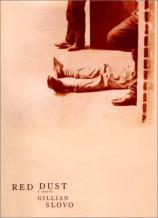Red Dust
Review
Red Dust
It is not unusual for a character in a mystery story to have a violent past. In Gillain Slovo's post-apartheid Africa, everyone is tainted by the country's terrible history, including the main character, Sarah Barcant, a prosecuting attorney who has chosen to live in New York, far away from the small, troubled town where she grew up. When Sarah's mentor calls her back to South Africa to work on a case for the Truth Commission, she confronts a world where the rules may have changed, but the game is still about choosing sides and sticking to them.
The reader will never doubt that activist Steve Sizela was beaten to death by the police. But how will Sarah get the defendants to acknowledge their guilt? Given the unlikelihood of the police testifying against each other and the questionable reliability of Alex Mpondo, Sizela's friend, fellow victim, and eyewitness to his imprisonment, how will Sarah reveal the truth when they've never even found Steve Sizela's body?
The pain in this book is quite real. It's easy to believe that the Sizelas simply want to bury their son, and it's clear that the families of the tortured and of the torturers live their own punishments. Ms. Slovo illustrates particularly well the subtle and permanent effects of political torture on the marriages of those involved as either victims or perpetrators. Alex Mpondo's anguish, when it dawns on him that he may have betrayed his friend to his death, is incalculable.
Oddly, it is Sarah, who ought to be the most familiar and accessible character in the book, who proves the biggest cipher. At one point she muses, "Sure, she knew she was good at her job, and sure, she also knew that most indigenous prosecutors would be too implicated by the past either to be interested in the case or to do it justice. But even so, the country was teeming with lawyers, many of whom would have been happy, and more than competent, to take on the case." So why is she there? Her family has moved away, she herself has no special history with the anti-apartheid movement, and nobody --- not even her mentor who hopes she will stay in South Africa permanently --- seems to like her very much. Placing a character with so little at stake in the center of a story where everyone else has so much diminishes the intensity of the important issues Ms. Slovo has chosen to explore.
Reviewed by Colleen Quinn on January 1, 2002



